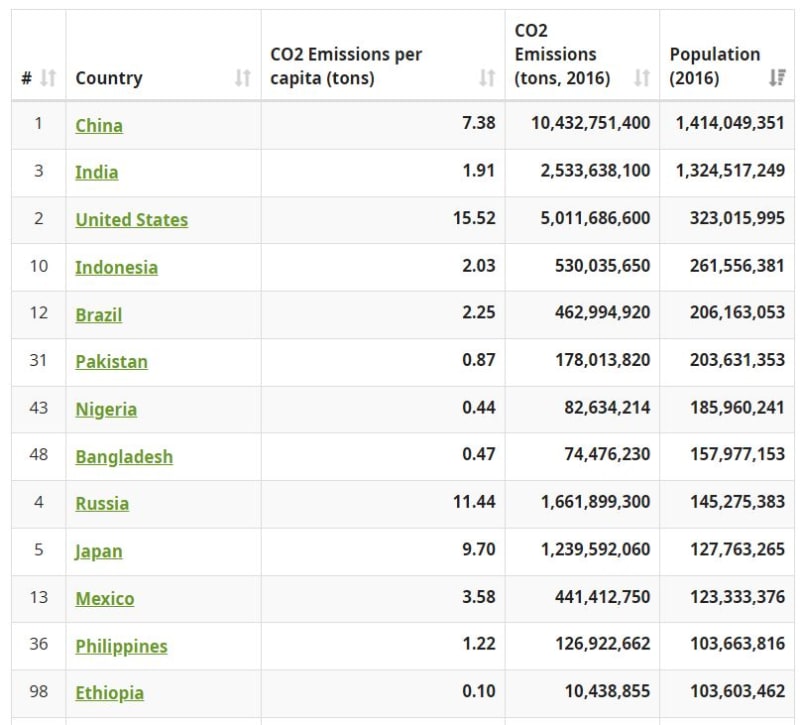GregLocock
Automotive
Predicates
The gold standard of CO2 measurements is Mauna Loa.
CO2 is well mixed in the atmosphere.
The mass of the atmosphere is 5e15 tons
M-L says CO2 is increasing by 2-3ppm every year (2.8 is a long term average) The IEA says we release about 32 GT of CO2 per year for energy related use
Maths
5e15T*3e-6=15GT
Hypotheses
1) one of my predicates is wrong
2) I can't do maths
3) ML is not measuring CO2 very well
4) There are negative feedback loops pulling half the additional CO2 out of the atmosphere every year
Discussion
Assuming 1-3 are irrelevant, something is eating half our CO2 within a year of it being emitted. If CO2 emissions reach net zero (they won't) then CO2 levels will fall by 1 ppm per year, at least initially. But if we got to 50% emissions, ie 16 GT/year, we'd expect the CO2 ppm to stabilise. The odd thing is that we were at that level of emissions in 1975 (approx), and yet we still had 1.2 ppm/year.
So there seems to be an absorption mechanism that is more active now than it was in 1975.
Some possibilities are
[ul]
[li]dealkalization of seawater, but that is a chemical process and is driven by ppm, 330 in 1975, 416 in 2021, so we'd expect a 26% increase, not 100% *[/li]
[li]greening of the earth- I don't have a handle on that[/li]
[/ul].
*not quite, it is driven by the excess ppm over the long term equilibrium value, which i don't know, possibly 280 ppm
Cheers
Greg Locock
New here? Try reading these, they might help FAQ731-376
The gold standard of CO2 measurements is Mauna Loa.
CO2 is well mixed in the atmosphere.
The mass of the atmosphere is 5e15 tons
M-L says CO2 is increasing by 2-3ppm every year (2.8 is a long term average) The IEA says we release about 32 GT of CO2 per year for energy related use
Maths
5e15T*3e-6=15GT
Hypotheses
1) one of my predicates is wrong
2) I can't do maths
3) ML is not measuring CO2 very well
4) There are negative feedback loops pulling half the additional CO2 out of the atmosphere every year
Discussion
Assuming 1-3 are irrelevant, something is eating half our CO2 within a year of it being emitted. If CO2 emissions reach net zero (they won't) then CO2 levels will fall by 1 ppm per year, at least initially. But if we got to 50% emissions, ie 16 GT/year, we'd expect the CO2 ppm to stabilise. The odd thing is that we were at that level of emissions in 1975 (approx), and yet we still had 1.2 ppm/year.
So there seems to be an absorption mechanism that is more active now than it was in 1975.
Some possibilities are
[ul]
[li]dealkalization of seawater, but that is a chemical process and is driven by ppm, 330 in 1975, 416 in 2021, so we'd expect a 26% increase, not 100% *[/li]
[li]greening of the earth- I don't have a handle on that[/li]
[/ul].
*not quite, it is driven by the excess ppm over the long term equilibrium value, which i don't know, possibly 280 ppm
Cheers
Greg Locock
New here? Try reading these, they might help FAQ731-376

